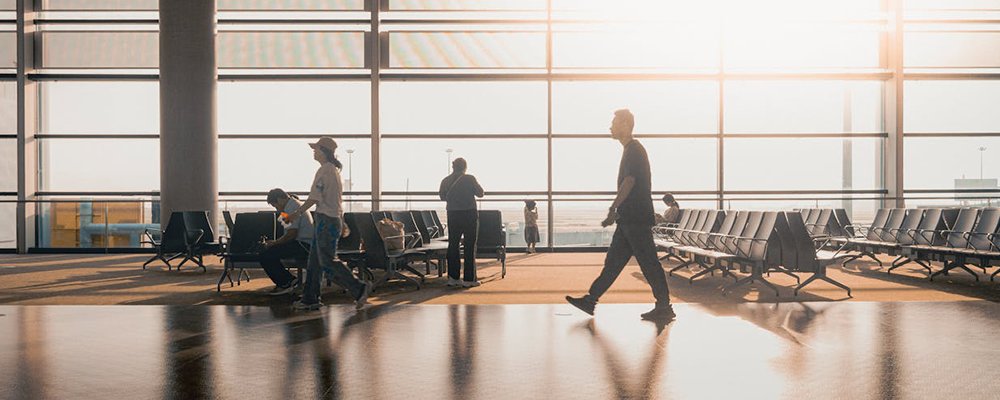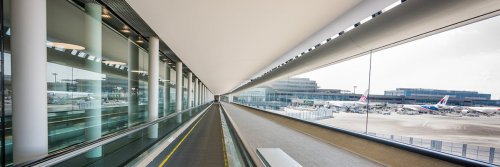The latest air travel rules are being shaken up by Turkey's decision to fine passengers who ignore warnings to stay seated before their flight comes to a stop. So Wise Traveller took a look at other quirky rules that you may never know existed.
Stay buckled up or face a fine
This May, airline passengers travelling to Turkey may be fined if they stand up before the seatbelt sign is turned off after landing, regulators have said.
The Turkish Civil Aviation Authority said it had imposed the order after receiving complaints from passengers. Fines of about $70 are taking effect, although no amount has officially been mentioned.
The authority warned that there had been a "serious increase" in such incidents, with many complaints about passengers grabbing overhead baggage before the plane had parked. It added that commercial airlines must now issue an in-flight announcement and report those who fail to follow orders. Passengers must be told to keep their seatbelts locked and refrain from standing and opening overhead lockers until the seatbelt sign is off.
"Passengers who do not comply with the rules will be reported to the Directorate General of Civil Aviation through a Disruptive Passenger Report, and an administrative fine will be imposed in accordance with the applicable legal regulations," Turkish Airlines (THY) stated.
Check-in gets earlier
US-based United Airlines has announced a new rule change, which takes effect in June.
Domestic travellers will now have to check in at least 45 minutes before departure, aligning with Delta and American, who have already implemented the same policy. Those who flout the new law will see their plans run aground.
"The change brings greater consistency for our customers by aligning with our current checked baggage deadline and the check-in policies followed by most other airlines," a United Airlines said. United's check-in cutoff time used to be 30 minutes before departure. International travellers are still required to check in at least 60 minutes before departure.
New Zealand hugs are limited to 3 minutes
Dunedin International Airport has, since late 2024, limited hug time for families before relatives embark on a flight. Officials introduced a three-minute limit on cuddles as part of an effort to enhance safety and maintain traffic flow at its drop-off zone. A sign in the airport's drop-off zone warns: "Max hug time 3 minutes. For fonder farewells, please use the car park."
Dunedin Airport chief executive Dan De Bono said warning messages at airport drop-off zones can be “quite intense” and threats to clamp wheels or impose fines were something the airport wanted to avoid. The airport drew the line at employing a hug police unit.
“We're trying to have fun with it. It is an airport, and those drop-off locations are common locations for farewells. There's no space left for others. It's about enabling others to have hugs."

Coin tossing is bad luck
A recent incident in China saw a plane delayed after an 80-year-old passenger threw several coins into the engine for good luck. The superstitious passenger later told police that she threw coins as she prayed for a safe flight.
The incident caused the China Southern Airlines flight at Shanghai Pudong International to be delayed for several hours while engineers recovered the change.
"To make sure the flight is safe, China Southern maintenance has conducted a full examination of the plane's engine," China Southern Airlines said in a statement, in which it also urged passengers to comply with civil aviation laws and regulations and avoid behaviour that could prove detrimental to the safety of passengers travelling on its flights.
The 3-1-1 Rule
That's not a new code, but an attempt by the US Transportation Security Administration to remind passengers about the rules of carrying liquids in their carry-on luggage. The rule applies to all passengers travelling within and departing from the United States.
The 3-1-1 rule stands for 3.4 ounces (100 millilitres) or less per item, one quart-sized bag, and one bag per passenger. This means you can bring a quart-sized bag of liquids, aerosols, gels, creams, and pastes in your carry-on bag and through the security checkpoint.
Each item should be in a travel-sized container of 3.4 ounces (100 millilitres) or less. The items should fit in one quart-sized, resealable bag. In fact, the rule has been in place since 2006.
The TSA states that solid foods like hamburgers can be carried on, but liquids, including sauces, must adhere to the 3.4-ounce limit and be placed in a clear, quart-sized bag.
Power-packed changes
Airlines in Asia, particularly Malaysia, Singapore, South Korea, Taiwan, and Thailand, have implemented new restrictions on the use and storage of power banks during flights, citing growing concerns over fire risks associated with lithium-ion batteries.
Following suit is Southwest Airlines. Passengers are required to keep portable chargers visible while in use and are prohibited from charging devices stored in overhead compartments.
The measures are aimed at reducing the risk of in-flight fires and addressing rising public concern over battery safety.
 Andy Probert is an independent journalist who writes about global travel news, airlines, airports, and business. His work has appeared globally on the BBC, and in many national newspapers and magazines.
Andy Probert is an independent journalist who writes about global travel news, airlines, airports, and business. His work has appeared globally on the BBC, and in many national newspapers and magazines.















